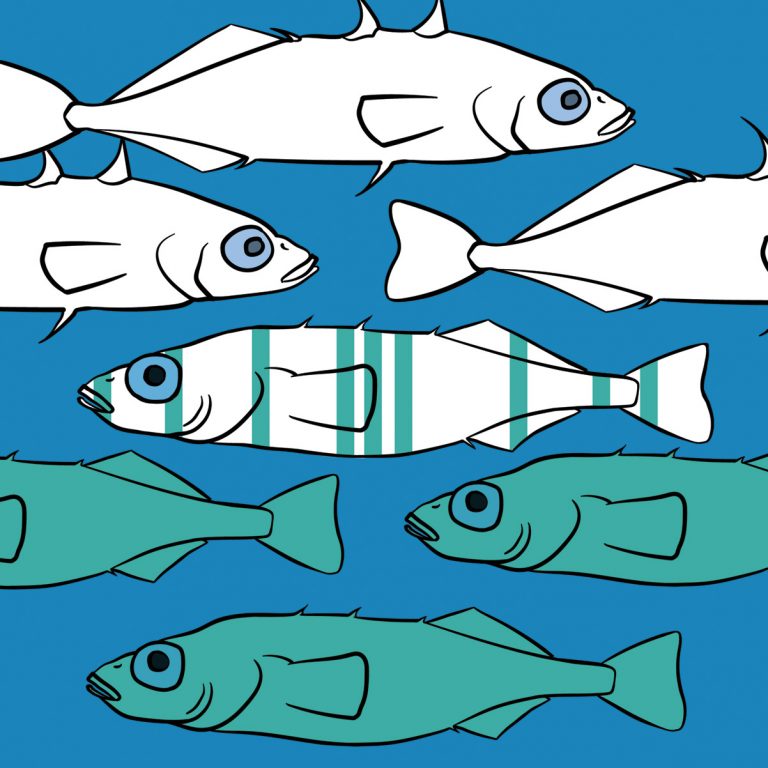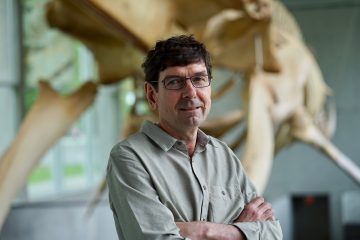The Origin of Modern Species
 Why are there so many species on earth? Do they evolve by natural selection as Darwin claimed? How do they evolve, persist, and go extinct? Can humans create new species? Biology has come a long way since Darwin, and he would be astonished at some of the answers to these questions.
Why are there so many species on earth? Do they evolve by natural selection as Darwin claimed? How do they evolve, persist, and go extinct? Can humans create new species? Biology has come a long way since Darwin, and he would be astonished at some of the answers to these questions.
Dr. Schluter will explain recent great discoveries in the origin of new species using examples from flies to fish, including his own work on BC stickleback. Findings will include: that new species are originating fastest at cold latitudes such as Canada, instead of hot latitudes such as the Amazon; that when new species form rapidly, evolution of new species often re-uses old genes borrowed from previous species; and that humans now know how to make new species in the lab.
This is a FREE event and it is part of the Biodiversity Lecture Series organized jointly by the Biodiversity Research Centre and the Beaty Biodiversity Museum.
 Bio and Featured Works
Bio and Featured Works
Dr. Dolph Schluter, Professor of Zoology at UBC’s Biodiversity Research Centre, is an evolutionary biologist who studies adaptive radiation — the evolution of ecological diversity in groups of organisms that are multiplying rapidly. His research suggests that adaptation to the environment can result in the evolution of new species. Dr. Schluter has worked on Darwin’s finches in the Galàpagos and has helped to develop the three-spined stickleback as an experimental model for studies of adaptation and the origin of species.
Dr. Schluter and his team investigate the ecological forces that drive the rapid origin of new species and allow them to persist, the genetic basis of species differences, and the wider ecological impacts of adaptive radiation.
He is the author of The Ecology of Adaptive Radiation (2000) and The Analysis of Biological Data (third edition, 2020). He was elected as a foreign associate of the National Academy of Sciences in 2017, and he is a Fellow of the Royal Societies of London and of Canada. Dr. Schluter’s work has fundamentally changed our understanding of evolution, revealing the ecological mechanisms driving the origin of species and probing the factors generating and maintaining biodiversity.
“My lab studies how new species form, how they evolve their differences, how they persist, and how quickly they go extinct. We carry out field experiments in lakes and ponds to measure natural and sexual selection and how they drive the origin of species. We also investigate the evolution of major biodiversity gradients, such as the greater number of species in the tropics than in the temperate zone. My earliest work was carried out on Darwin’s famous finches in the Galápagos Islands. My lab now mainly works on a mini-explosion of new types of threespine stickleback in lakes of coastal BC, which include some of the youngest animal species on earth.”
Attend in person
The event will be held in the Jack Poole Hall at the Robert H. Lee Alumni Centre. Please click here for the address. Space is limited and guests will be seated on a first-come, first-served basis.
Parking: there is limited metered street parking available along University Blvd and Wesbrook Mall. We suggest using one of the following parkades:
- Health Science Parkade
2250 Health Sciences Mall V6T 1Z3,
Directions - North Parkade
6115 Student Union Boulevard V6T 1Z1
Directions
View the university parkade and parking lot map.
